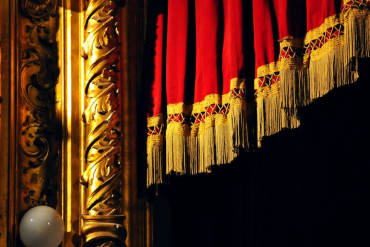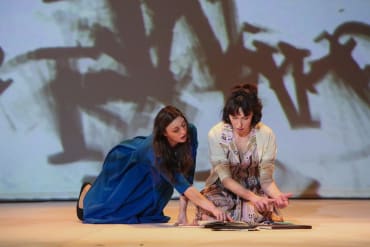On an exceptionally hot evening early in July a young man came out of the garret in which he lodged in S. Place and walked slowly, as though in hesitation, towards K. bridge. This is the opening sentence of one of the greatest novels of world literature Crime and Punishment written by Fyodor M. Dostoevsky (1821 – 1881) in 1866. The young man’s name is Raskolnikov, and he is an impoverished student and intellectual, a representative of the intellectual and moral spirit of the new generation. His name marks schism, not only between him and the other, the philosophy of the new generation and the habits of the old society, but also a schism within himself. Within this psychological derangement and discrepancy with reality, Raskolnikov takes an axe and splits the skulls of an old pawnbroker Alyona and her unfortunate sister Lizaveta and thus commits one of the most famous crimes in the history of literature. Still, in the world where human life is entirely depreciated and seems to have less value than a tiny item, cigarette case or wristwatch, murder cannot go unpunished.
Crime and Punishment is a crime novel where the crime and the perpetrator are known from the very beginning. The punishment, from the very title is already engraved in each of us, punishment harsher than imprisonment and punishment faster than law – guilt. Crime and Punishment is a meditation about the guilt that overflows Raskolnikov’s body and his subconscious, about the relentless work of guilt that is surpassed by rationalising or the feeling of intellectual supremacy, about the guilt that penetrates into the dreams, that suffocates, that is stuck in the throat that stirs inflammations and causes deliria.
For Dostoevsky guilt is a place in an individual where sin and crime, the Church and society intertwine and where conscience and consciousness meet. In Crime and Punishment, Raskolnikov turns into a reality and ontology of guilt, guilt in action, in movement, in life. The works of Fyodor M. Dostoevsky also offer the opportunity for redemption which is, just like life, marked with the endurance of suffering, since only in mercy, can one survive so much unbearable pain and endless joy. Dostoevsky’s Crime and Punishment will be staged by Jerej Lorenci at the Croatian National Theatre in Zagreb.



























